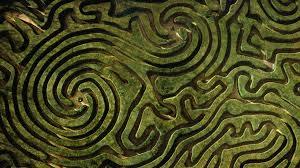Community Reviews
As critics loudly decried the supposed Death of the Novel, Death of the Story, Death of the Author, and so on, Barth chose to embrace the chaos and even add to the destruction. His collection, though billed as a connected series, actually covers a wide range of relatively unconnected topics. It jumps between personal narrative, self-reflexive formal displays, and re-imagined mythology. While it's all very clever, for me, the content sometimes struggles to match the level of cleverness. In the earlier part of the book, the more linear narratives can feel sluggish mainly because their comedic ideas aren't humorous enough to carry them through. Later on, we encounter complete deconstruction that may lack substance beyond its form, or Greek mythologies that are repurposed for rather obscure meta-purposes. (I'm not a classicist, but I thought I knew enough to understand these reasonably well, yet they seem to get lost in the manipulation of their own artificial period mechanics. The closer "Anonymiad" is the only one with a somewhat balanced story form.) Despite this, it's actually the crazy metastories in the middle that intrigued me the most - the narrative-formal-reflexive sweet spot of the title story, the metaphysical panic of "Life-Story" and "Title". Each of these is remarkable, but they exist as bright spots among a bit of a slog. It's still worth it for these, and perhaps there's even more to discover if more patient readers dig deeper. Impatient readers will likely get frustrated - as seen in the apparent complaint of critics who thought the opener was narrated by a fish. No, it's much weirder and better than that, although the conceit may push the patience of those who caught on from the first pages. So, basically, I continue to find Barth interesting but also rather challenging. At least there were no characterizations that bothered me as much as in Giles, Goat Boy.
First, an admission: I didn't read the final two stories. I'm not well-versed in Greek mythology, and thus the constant allusions simply flew over my head.
However, the remainder of the intensely metafictional, highly self-referential, labyrinthine, and almost Borges-on-drugs-like stories in this collection were both enjoyable and somewhat bewildering. Surprisingly, they ended up providing me with a wealth of inspiration for my own writing. Barth can sometimes be overly clever for his own good, but he's always an optimistic and fascinating writer. I relished those stories that I could understand and simply skipped over those that eluded me.
It's quite interesting to contrast these stories with those in his later work, "The Development". The stories in this collection possess the raw energy of a writer delving into metafictional games with unadulterated delight. In contrast, his later stories temper the metafiction with captivating tales of their own. Barth's linguistic games are indeed entertaining, but in my view, they lack inherent meaning on their own. As thought experiments, they can be extremely enjoyable, but to me, they're equivalent to literary candy.
And this is some rather tough candy that demands a great deal of effort to bite into. By the end of the book, I just didn't feel that the rewards were commensurate with the effort expended.

Featured in my Top 20 Books I Read in 2016: https://www.youtube.com/watch?v=4X6OQ...
Now, let's talk about the question: To whom is the funhouse fun? Well, for the Bookchemist, it might hold a certain charm. However, it's important to note that this book isn't for everyone. If you don't have a clear understanding of what you're getting into, it could very well end up annoying you. But if you're someone who is willing to take a chance and explore the unknown, then by all means, roll up roll up. Open the pages and see where this literary adventure takes you. Who knows, it might just be a wild and wonderful ride that you'll never forget.
Barth is emerging as one of the truly wacky uncles within the realm of postmodern literature. His works are crafted in a manner that gives the distinct impression that he is right there beside you, a drink held firmly in his hand, and softly whispering into your ear. It's as if he is inviting you into a world where the rules of traditional storytelling are bent and twisted. His writing style is both captivating and confounding, making you question everything you thought you knew about literature. With each turn of the page, you are drawn deeper into his unique and often chaotic universe. Barth's books are not just to be read; they are to be experienced, as if you are a part of the story itself.












